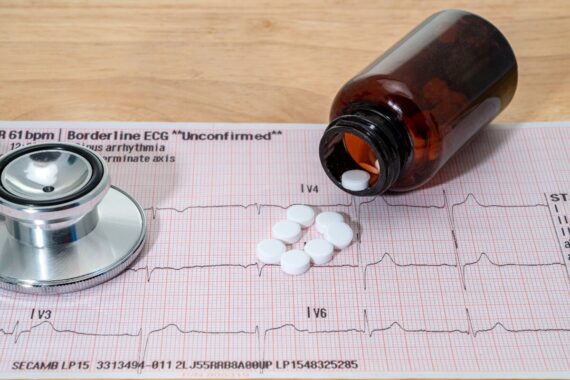Responsibilities around cardiovascular disease (CVD) prevention should be extended beyond general practice, the Government’s chief medical officer has said.
Professor Chris Whitty’s remarks came during a speech at the King’s Fund annual conference in London last week, where he spoke about caring for an aging population.
During the speech attended by Pulse, he said that there has been a steady a reduction in cardiovascular deaths in past few decades due to multiple steps including primary prevention (including reductions in smoking and air pollution) as well as secondary prevention and treatment.
Professor Whitty said: ‘Secondary prevention – this is what you do either because someone has got a risk factor picked up usually by the GP or in a random test.
‘This has transformed the position where people who get early disease are not going on to have severe disease limit their lives in their early old age.
‘That’s things like betablockers, ACE inhibitors, antiplatelets, anticoagulants. The standard route of things is that you would expect this to be done conventionally by general practice.
‘My first substantive point is that this will only continue to improve if we extend this out beyond general practice, if the entire medical, nursing and pharmacy profession take this on we can go further in this area than if we just leave it in primary care.’
According to estimates by a pharmacy trade association in April, community pharmacies prevented 600 future heart attacks and strokes in the first year of a new blood pressure service.
However, the RCGP had previously warned that pharmacists are not a substitute and must not be seen as ‘GPs on the cheap’.
Earlier this year, the Government announced it will set out a strategy to tackle six major conditions next year contributing to England’s ‘burden of disease’, including cardiovascular diseases.
The first focus of the strategy will be ‘primary prevention’ which includes interventions across the population to reduce the risk of disease, for example schemes to increase physical activity.
It will also look to improve early diagnosis and ‘secure more equitable access to diagnosis’ in order to boost health outcomes for people with major conditions.
Writing about the major conditions strategy in June, the health secretary suggested that the NHS treats patients’ health conditions ‘separately’, but some GPs said this revealed a blatant misunderstanding of what GPs do.
Pulse October survey
Take our July 2025 survey to potentially win £1.000 worth of tokens














Yes, I have heard a rumour that there may be some doctors working in ‘secondary care hospitals’ as well as in Primary Care, so maybe some of the ‘secondary prevention’ could be done by those doctors who work in secondary care hospitals, if it is true that there are doctors in hospitals as well.
Now I wonder of whom we could ask that question, if there are secondary care doctors?
Do you think the CMO would know ???
I still see patients coming out of hospital without antiplatelet treatment, also with antiplatelet treatment but with out a PPI.
It is so common place I cant believe the big doctors in the big shiny hospitals arent doing basic secondary prevention. Either they dont know how or dont see it as their job?